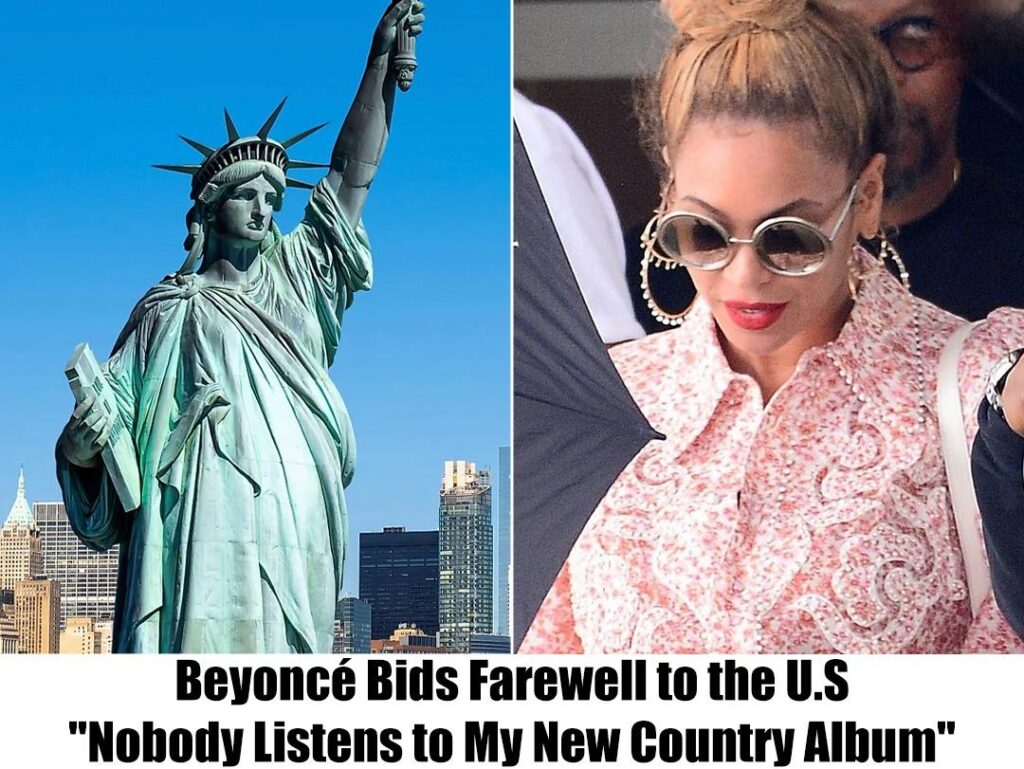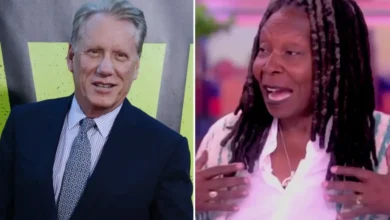Beyoncé Announces Departure from the U.S.: “My New Country Album Goes Unheard”

In a surprising development, global superstar Beyoncé has revealed plans to leave the United States, expressing disappointment over the reception of her latest album, *Cowboy Carter*. This album represents a bold venture into country music, achieving both critical success and sparking debate. Despite its chart-topping performance, Beyoncé feels that the core country music audience has not accepted her new style.
“Nobody listens to my new country album,” Beyoncé shared during an emotional interview with a leading music magazine. “I poured my soul into *Cowboy Carter*, merging my origins with the essence of Americana, yet the audience I aimed to connect with seems unresponsive.” Her announcement follows critical praise for the album, which, paradoxically, has not resonated with traditional country music listeners.
Envisioned as a genre-fusing project, *Cowboy Carter* blends pop, hip-hop, blues, and Irish jigs, celebrating the often-overlooked contributions of Black artists to country music. The album includes collaborations with legends like Willie Nelson and emerging Black country artists such as Brittney Spencer and Willie Jones, challenging conventional notions of country music’s boundaries.
However, the album’s journey has faced challenges. While Beyoncé’s varied fan base applauds the album’s innovative spirit, country music purists have shown tepid enthusiasm. Questions about her authenticity and commitment to the genre have influenced its acceptance by traditional listeners.
Distanced from her American roots and discouraged by the criticism, Beyoncé is now exploring opportunities abroad. “I am considering moving to a place where my music is appreciated for its artistic merit, and where the lines between musical genres are less defined,” she expressed.
This news has stirred the music industry and her fans alike. Experts suggest Beyoncé’s experience reflects a broader issue in music culture, where rigid genre classifications can hinder creative progress.
“Beyoncé’s ordeal with *Cowboy Carter* underscores a significant challenge in our music culture,” comments Joanna Reid, a professor of Musicology. “Artists are often confined to specific genres, and crossing these boundaries can lead to substantial resistance. This isn’t just about Beyoncé; it’s about the constraints we place on artistic creativity.”
Fans worldwide have shown robust support, praising *Cowboy Carter* on social media for expanding their musical horizons and introducing them to the legacy of Black country artists.
Internationally, especially in Europe and Africa where Beyoncé enjoys widespread popularity, there’s heightened anticipation for potentially hosting her. Music festivals and venues in cities like Paris, Berlin, and Lagos have already extended invitations, keen to celebrate her genre-defying work.
Amid the support and controversy, Beyoncé is contemplating her future moves. “This isn’t just about where I live. It’s about finding a place where my art is understood, and where I can keep growing and experimenting as an artist,” she reflects. As this story unfolds, it prompts vital questions about the evolution of music genres and the global music community’s capacity to adapt. Whatever Beyoncé decides, her influence on the music industry remains undeniable, pushing us to transcend traditional boundaries and foster a more inclusive musical environment.






